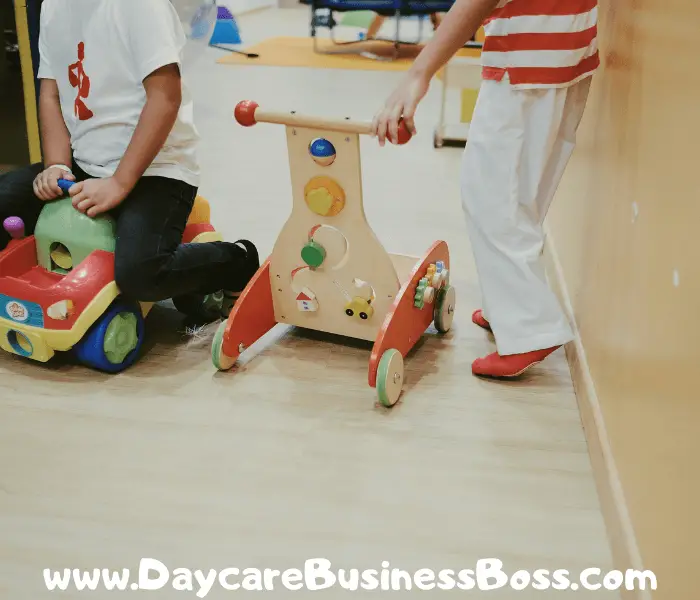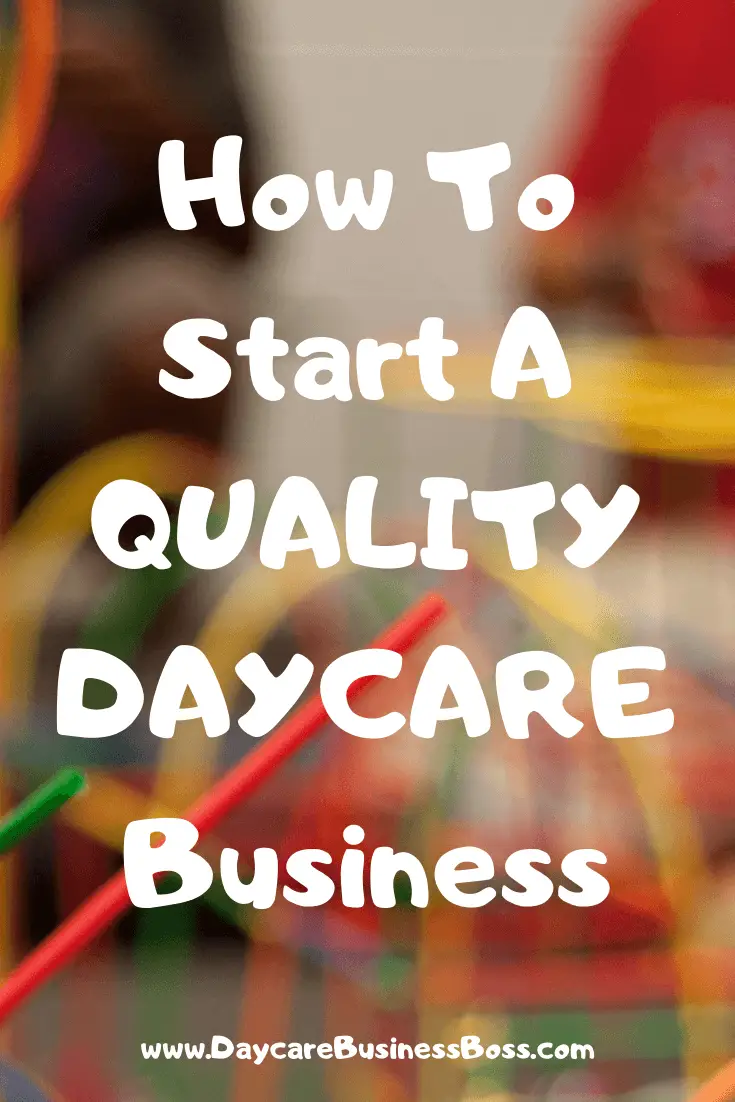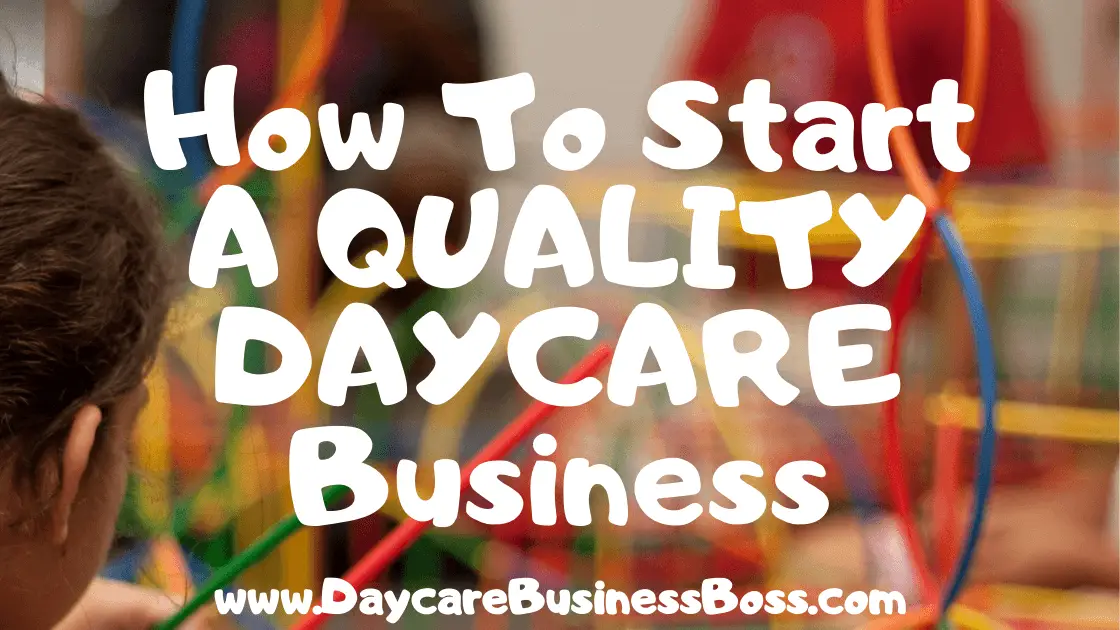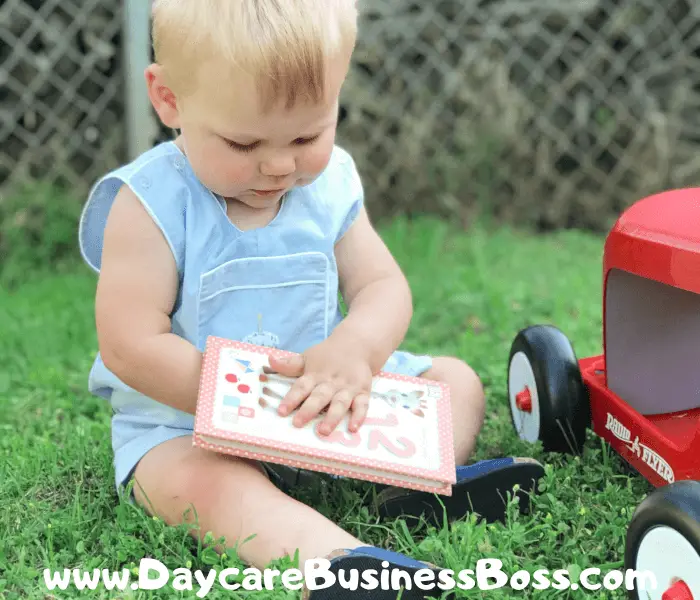Very few people set out to create a mediocre business. Everyone wants to be the best in their industry, but due to limited funds, time constraints, or setbacks, many businesses have to sacrifice quality just to stay afloat.
If you’re wanting to own and operate a top-of-the-line, quality daycare facility, there are a few things you should focus on to set yourself apart from the competition.
- Thoroughly research the marketplace
- Develop a strong marketing plan
- Have a rigorous hiring and training process
- Provide exceptional service
- Be passionate
Thoroughly research the marketplace
Understanding the landscape of your local market is crucial to setting your daycare up to succeed.
To create an effective profile of your local market you need to consider the following:
- How large is your market geographically?
- How many competitors are in your market area?
- What are their strengths and weaknesses?
- What opportunities are available?
- Are there any niches you can serve?
- What is the overall economic state of your service area?
- Who is your target audience?

Market area
The size of your market area will be different for every daycare. A daycare in an urban area can have over potential 10,000 customers in a square mile, if you are in a rural community you will have significantly fewer customers and will need to expand your market area to attract an adequate amount of competition.
To find your market area, do what makes sense for your daycare. Consider things such as:
- Are you in a rural, suburban, or urban community?
- Are there any neighboring towns that you could target?
- What size customer base are you wanting to serve?
- How long will the customer’s travel time be?
Competition
Scouting your competition is essential to figure out where your daycare fits into the overall market landscape. When you look at your competition you will get an idea of what they specialize in, what is working for them, and areas that they are not concerned with or don’t service.
If you have a competitor that specializes in special needs that has been in operation for 25 years with unlimited positive reviews, it is probably best to avoid that sector. However, you will find gaps that some or all competitors are not servicing, which creates opportunity for you.
At the end of the day, make sure you are not just looking at your competition but also your businesses unique strengths that you can leverage.
After thoroughly researching your competition, make a list of the areas in the market that appear to be underserved and how your daycare could satisfy those needs.
Some niches that you can go after with your daycare:
- Foreign language
- Special needs
- Field trips
- Infant care
- Gifted and talented
Develop a strong marketing plan
Some daycare owners overlook the importance of marketing because they feel that if they have a quality daycare center, people will come. This may be true in some cases, but every daycare center can benefit from a strong marketing plan.
There’s a couple of reasons for this. When you have a marketing plan in place, you will be targeting the right customers and quality customers who need your services. This leads to stronger relationships, less conflict, and less work trying to obtain these customers.
Also, at the end of the day, a quality marketing plan is going to make your business more money. Even if you’re in the daycare business to care for children and making money is an afterthought, you, the children, and your facility will benefit from extra cash flow. You will be able to buy nicer equipment, healthier food, and provide more services for the children.
We are going to go through the key components to creating an effective marketing plan. Not every daycare will need to implement every piece of marketing material, choose what is right for your business and your budget.
Identify your ideal customer
The first step to creating a focused marketing plan is identifying your ideal customer. The reason you do this is to help you tailor your marketing message to reach the customers that need, want, and are excited about your service.
“When you market to everyone, you market to no one” – Diana Khoury
As a daycare, you are obviously going to be targeting parents in your geographic area. But not every parent is needing child care services, and not every parent is needing your specific child care services.
When you can narrow your message to target your ideal customer, you will be more effective and get more responses.
To develop your ideal customer, the basic information you need is:
- Age
- Income
- Family size
But it is highly recommended you go deeper and ask questions like:
- What are their pain points?
- What are they looking for in a daycare?
- What would they pay a premium price for?
It is best to write out all this information on 1 sheet of paper and keep it handy. You can also print out a sample picture of your ideal customer. This can seem strange to some, but the more precise your ideal customer, the easier the rest of your marketing tasks will be.
SWOT Analysis
A quick and easy tool that can help in your marketing efforts is a SWOT analysis. SWOT stands for:
- Strengths
- Weaknesses
- Opportunities
- Threats
You can do a SWOT analysis for your business, or any of your competitors. On a piece of paper, write out these 4 categories. Underneath each category write as many things you can think of, then review these items to get a big picture of how the business looks.
Create Your Marketing Message
Your marketing message should reflect your brand and talk directly to your ideal customer. A common mistake businesses make when creating their marketing message is they talk about how great they are.
Your customer doesn’t care about how great your business is, they care about what you can do to solve their problems.
Another common mistake is talking about the features of your service instead of the benefits. Similar to the previous issue, your customer wants to know how you can benefit them, not how many toys you have available.
Some examples of bad and good marketing messages:
Bad
- We help your child stay active.
Good
- Your child will be exhausted from all the fun and learning they experience at our center.
Bad
- We use strict safety guidelines.
Good
- You will have peace of mind knowing that your child is in the safest hands possible.
If you keep your ideal customer in mind and what they are needing, you will have no problem creating impactful marketing messages.
Networking
Networking is a wonderful way to establish your business in the local community. Attending local networking events will put you in touch with customers, provide referrals, and can connect you with other businesses in related fields such as:
- Schools
- Summer camps
- Tutors
Have a rigorous hiring & training process
Your employees are the lifeblood of your daycare facility. They are going to be interacting with children and parents daily. If you hire inexperienced or incapable employees you are going to hurt your business and put children at risk.
If you follow the steps below you will be able to identify quality prospects, qualify these prospects, and then select the ones that fit best with your company.
Hiring employees
Job posting
The search for your ideal employee begins with a well-designed job posting. This is an important step that often gets overlooked and done incorrectly.
Some daycares try to oversell themselves and promise their potential employees a utopian life if they get hired. This is an issue because while this might attract a lot of prospects, it will inevitably lead to disappointment and frustration later on when reality starts to set in.
Another common mistake is to not be specific and upfront about what the job responsibilities are. If your employees are going to be performing unpleasant and difficult duties, such as changing diapers or cleaning up after accidents, let them know before they even click the apply button. When you do this, the people that do apply will be prepared and ready to perform these difficult tasks.
It is best to just be as honest as possible while you are writing your job posting. This will attract the right prospects and let them know what they are getting themselves into. Some things to include in your job posting:
- Brief business description
- Overall job scope
- Duties performed
- Job location
- Working environment
- Hours
- Flexibility of working hours
- Pay rate
- Experience required or preferred
- Preferred character traits
- Perks and benefits
- Training
Interviews
Once you have had your job posting up and gone through an adequate amount of prospects, it is time to start the interview process. There is no right number for how many prospects you should interview. Typically 3-5 interviews per position is a good number, but it could be more or less depending on your time constraints, number of quality candidates, and how many candidates you are wanting to hire.
The interview process is important to select the right candidate, there are a number of things to keep in mind during the interview. Follow these steps below to make sure your interview is designed to select the perfect candidate.
Introductions
Going into an interview is a scary task for many people. It is not easy to sit across from a stranger in a 1-on-1 interview, knowing that they are judging your character, all while a potential job is on the line.
When people are nervous and stressed out, you are not going to get an accurate sample of who they are and what their personality is like. Also, if the interviewee feels that you are judging every little thing they are doing, they might try to put on an act to please you, this will also lead to an inaccurate depiction of their true self.
Start the interview by being friendly and laid back. You can give them a little bit of your background and interests to hopefully find some common ground. You don’t want to be overly silly, but it is okay to joke around a bit and let them know that you are both human and just having a conversation.
The goal is to put the candidate at ease so they can open up about who they really are. Let them know they can take their time answering questions and feel free to ask any of their own.
You also should go over the job description in detail so you both are on the same page for the rest of the interview.
Getting to know the applicant
Once you have broken the ice and warmed up to each other, it is time to ask your candidate about who they are, strengths, weaknesses, interests, and motivations.
This portion of the interview might be the most important portion because you get a strong understanding of the applicant’s character. If you find employees with strong character and work ethic, they will likely be a quality employee, even if their experience and talent might not be the best in the group.
During this time try to focus on the candidates overall energy and excitement about the questions. If they are relaxed, talkative, and genuine this is a very good sign. If they are tight and giving short answers, it’s a bit of a red flag, but don’t be too critical because they could just be taking a little to warm up.
Some great questions to get to know your candidate:
- Tell me a little bit about yourself
- What are your hobbies and interests?
- What are some of your most significant accomplishments? Both professionally and personally
- What motivates you?
- What makes you happy?
- What are some of your greatest strengths?
- What are some of your weaknesses or things that you can work on?
- What’s important for you in a job?
- What are you looking for in an employer?
- How do you typically handle stressful or difficult situations with children?
- What made you choose daycare as a job?
Employment history and goals
Once you have a good understanding of your candidates personality and character, you can move into their employment history and goals for the future. This section can help give you an understanding of previous experience that might be beneficial, as well as their ambition.
Another thing to look out for during this section is how they discuss their previous employers and job experiences. If they are vague with their responses or blaming others for problems, this is a red flag. It is much better to have a candidate be honest and say they could’ve done a better job than to have someone not be honest to try and impress you.
- Are you currently employed? If so, where? Why are you wanting to leave?
- Have you ever had a job in child care? How did it go?
- Why did you leave ________? (any previous position)
- What has been your favorite job so far? Why?
- Describe your least favorite job? What made the experience unpleasant?
- What are you looking for in this position?
- What are your expectations for this position?
- What are your long-term goals? 6-months, 1-year, 5-years?
- Would you consider yourself teachable?
- Are you willing to learn new skills for this position?
- How long do you plan to work at this job?
General child care questions
Now that you have information about their employment history and personality, it is time to pair it with their knowledge and experience in child care to give you an idea of how well they will fit into this position.
The goal of this section is to make sure they have adequate experience and can perform the job on a day-to-day basis whether you are there or not. If the person has a great character and work ethic, but no child care experience, it doesn’t mean they should be thrown out, but you should be prepared to spend extra time getting them trained.
This is also a good time to get an idea of how they will handle difficult situations. This can be things such as long days, tantrums, accidents, or unexpected challenges. You should be looking for candidates to be open and honest about these situations, but ready to deal with them when the time comes. If a candidate is acting like they love working themselves to the bone and prefer difficult children, this might be a sign that they aren’t telling the whole truth.
- What attracted you to working in child care?
- What do you enjoy about child care?
- What do you find most challenging about child care?
- How many years of child care experience do you have?
- What different areas of child care do you have experience with?
- Are there any child care tasks you can’t perform? (allergies, physical limitations, phobias, etc.)
- How would you describe your teaching/care style?
- What do you think makes a great daycare teacher?
- What’s the greatest success you’ve had working with this age group?
Specific child care questions
If you’ve made it this far into the interview and the candidate is looking good, they are probably someone you’d be willing to hire. Getting into the specifics about their abilities and experience can help you narrow down your shortlist of good candidates to one or two great candidates.
During this section, you will be looking for unique skills or experience that will bring substantial value to your daycare. These can be things that your daycare doesn’t currently offer, only a few employees can do, or that will just come in handy from time to time. This could be things like a foreign language, special needs care, or educational experience
- Is there anything unique about your child care background?
- Do you speak a foreign language?
- Do you have any experience with children with special needs?
- Do you have any teaching experience?
- What’s your preferred schedule like?
Job details and expectations
Before you wrap up the interview you should review the job description and have a discussion with the candidate about their expectations and preferences. This helps you and the candidate get on the same page for the details of the position.
This section usually is pretty run-of-the-mill. Some things to look out for is if your candidate is uncertain about their schedule and has unrealistic salary demands. You are wanting to hire the best candidate, but if they are looking for top dollar and an easy schedule, you might have to move on to the next candidate.
- If hired, when would you be available to start?
- What salary or hourly rate are you expecting?
- Would you be open to a trial period?
- What amount of hours are you needing/expecting each week?
- What are your schedule limitations?
- What are your expectations for the holidays?
- Can you provide 3 references?
- Would you be willing to sign a contract?
Closing questions and discussion
You made it to the end of the interview. The interview process can be stressful both for interviewee and interviewer. Sometimes when you get to the end you just want to breathe a sigh of relief and end the meeting.
It is important that you debrief with your candidate to get their thoughts on the position, interview, and if they have any questions for you. This helps tie the rest of the interview together and make sure there is nothing left to question.
This also provides some feedback for you so you can refine and improve your interviewing process.
- Do you have any questions for me about the position or in general?
- Is there anything else you would like to mention?
- How did you feel about the layout of this interview?

Training employees
Training is something that often gets overlooked because owners feel that if an employee knows the basics of child care or has worked in the industry before, they know everything they need. Training employees properly is beneficial because it makes sure you and your employee are on the same page, they understand their expectations and responsibilities, and it builds confidence in them.
Performing a more thorough training costs more of your time upfront, but will help retain employees and keep customers and their children happy which will save you a lot more down the road.
Some areas where your employees need to be trained:
- Basic child care
- Safety and first aid
- Educational teaching
- Documentation/record keeping
- Customer service/interaction
Aside from having a well-trained employee, spending time with them helps you get to know them better. This is beneficial for identifying problem areas that need to be monitored, but also helps you and your new employee bond which will hopefully create loyalty and a long-term relationship.
When training a new employee, we strongly recommend starting them out paired with you, or an experienced employee. This helps them learn hands-on and have a mentor.
Working as a pair also helps you make sure they are meeting expectations and caring for the children adequately. If a new employee doesn’t do something because they didn’t know it was their responsibility, this could be a safety hazard and put your reputation at risk.
Another great way to help out your new employee and make sure they are completing all their tasks are checklists. Checklists are a simple tool that can save you from big mistakes.
Have a couple of essential tasks for each employee throughout the day so they can be productive and helpful.
Provide exceptional service
You can spend endless amounts of money on advertising, create a beautiful website, be ranked #1 on Google’s search engine, and you will probably have plenty of customers. But if you want to be a truly quality daycare center you need to offer unmatched service and care for the children.
The great thing is, providing excellent customer service typically doesn’t cost anything extra. If you have the right employees hired and trained, and they have bought into your mission, excellent customer service is just a byproduct of that.
With every customer interaction make sure you are genuine and treat them with respect and kindness. If you do this you will lay a solid foundation for you to build a quality daycare facility.
Please note: This blog post is for educational purposes only and does not constitute legal advice. Please consult a legal expert to address your specific needs.
Ready to start your quality business? Checkout our startup course and documents here.


Meet Shawn Chun: Entrepreneur and Childcare Business Fan.
I’m a happy individual who happens to be an entrepreneur. I have owned several types of businesses in my life from a coffee shop to an import and export business to an online review business plus a few more and now I create online daycare business resources for those interested in starting new ventures. It’s demanding work but I love it. I do it for those passionate about their business and their goals. That’s why when I meet a childcare business owner, I see myself. I know how hard the struggle is to retain clients, find good employees and keep the business growing all while trying to stay competitive.
That’s why I created Daycare Business Boss: I want to help childcare business owners like you build a thriving business that brings you endless joy and supports your ideal lifestyle.




4 thoughts on “How To Start A Quality Daycare Business”
Comments are closed.